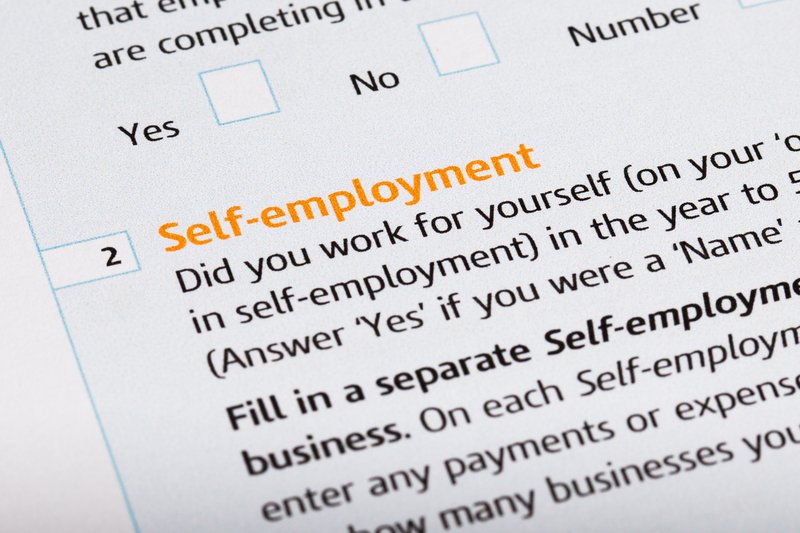When you start a business as a sole trader or become a limited company director, you may need to file a tax return under self-assessment.
This guide explains self-assessment, who needs to file an annual tax return, and how you are taxed, together with lots more handy information.
- What is self assessment?
- How do you register for self assessment?
- Do I need to fill in a tax return?
- When is my tax return due?
- What paperwork should I get ready?
- How long should you keep your personal tax records for?
- What are the penalties if you miss the deadline?
- What happens if you make a mistake on your tax return?
- How an accountant can help.
What is Self Assessment?
HMRC uses the Self Assessment system to enable individuals to report their annual income and calculate the amount of tax they owe.
Tax is automatically deducted at source via PAYE if you are a regular employee.
You must file a tax return each year if you are self-employed, receive untaxed income, or need to claim tax relief.
The system ensures that people accurately declare income from sources like business profits, investments, or rental properties and pay the correct amount of tax.
You must submit your tax return (and pay any tax owed) by 31st January for the previous tax year.
How do you register for Self Assessment?
The process is slightly different depending on if you’re a sole trader or a limited company director.
You must register by 5th October following the end of the tax year in which you became self-employed or a company director.
Once registered, you can submit your tax return online via your HMRC self-assessment account. If you have an accountant, they can also do this on your behalf.
Steps to register – for sole traders and limited company directors
- Create a Government Gateway Account:
- Go to the HMRC website and create a Government Gateway account if you don’t already have one.
- If you’re a sole trader, first register as self employed:
- Register for self-assessment and as a sole trader (if applicable) by filling out the online form on HMRC’s website.
- If you’re a limited company director (not a sole trader), register for Self Assessment using the online form.
- Receive your Unique Taxpayer Reference (UTR):
- HMRC will post your UTR within ten days. For limited company directors, this is a different UTR from your limited company’s one. Make sure you allow enough time to receive your UTR, and don’t miss the deadline!
- Activate your Self Assessment Account:
- Once you receive the UTR, you will also get an activation code for your self-assessment account. Use this to complete the setup process and start filing tax returns.
Do I need to fill in a tax return?
The following people need to complete tax returns each year:
- If you are self-employed, whether as a sole trader or in a partnership.
- If you are a limited company director and receive income or dividends not taxed through PAYE.
- If you have income from savings, investments, property, or overseas investments.
- If you receive other untaxed income that isn’t collected at source, such as freelance work, income from a ‘side hustle’, or occasional work.
- If you earn over £150,000 a year.
- If you or your partner earns over £60,000 and receive Child Benefit, you may have to pay back some or all of it through the High Income Child Benefit Charge.
- If you must pay Capital Gains Tax (on property sales, shares, etc.).
- If you want to claim tax relief through schemes like the Enterprise Investment Scheme (EIS) or Venture Capital Trusts (VCT).
- If you live abroad and have UK income that needs to be taxed.
- If you receive income from trusts, estates, or settlements.
- If you’re an employee claiming work expenses that exceed £2,500 (for travel, professional subscriptions, etc.).
- If you receive dividends or savings interest above the annual allowances (Dividend Allowance or Personal Savings Allowance).
In addition to these main groups, there are other more select groups such as pension scheme trustees and ministers of religion – but we won’t include them all here.
When is my tax return due?
The deadline for submitting your tax return and paying any tax owed is 31st January for the previous tax year. If you are one of the few still submitting paper returns, these must be posted to HMRC by 31st October.
If you have tax to pay, you may also need to make ‘payments on account’—advance payments towards next year’s tax bill.
Free Tide Business Bank Account - £50 Cashback!

Open a free business current account to qualify + enjoy 12 months free transactions. Read our Tide review.
You need to pay any outstanding tax by 31st January. In addition, if your tax bill is over £1,000, you usually have to make advance payments towards next year’s tax liability.
- 50% by 31st January.
- 50% by 31st July.
HMRC assumes your tax bill will be similar the following year. However, if you expect it to be lower, you can apply to reduce these payments on account.
What paperwork should you get ready before you complete your tax return?
-
P60 Form (for employees):
- This is your year-end tax certificate showing the total pay, tax, and National Insurance Contributions deducted during the tax year.
-
P11D (Benefits in Kind):
- Employers must provide a P11D for employees, including directors, who received taxable benefits during the tax year (e.g., company cars, health insurance).
-
Bank Statements:
- Bank statements are crucial for calculating how much income you’ve received and tracking any interest earned. Note that tax is no longer deducted at source for most savings, so report the gross amount of interest earned.
-
Self-Employed Accounts (for sole traders):
- If you’re a sole trader, you’ll need detailed accounts of your business income and expenses. Using accounting software like FreeAgent or Xero can simplify the process.
-
Untaxed Income:
- Keep a record of untaxed income, such as earnings from freelance work, side businesses, or renting out property. You’ll need to declare all supplementary income, even from casual work or sales on platforms like eBay.
-
Dividends:
- Dividends, whether from your limited company, public shares, or unit trusts, must be declared. Dividends are taxed separately from regular income at different rates. Read our guide to dividend tax for more details.
-
Child Benefit:
- If you or your partner earn over £60,000 and receive Child Benefit, you may need to repay part or all of it via the High Income Child Benefit Charge.
Keep your Self Assessment records for at least five years
Business owners must keep records of income and expenses for at least five years after the 31st January deadline of the relevant tax year. Using accounting software can significantly simplify this task!
What are the penalties if you miss the deadline?
Missing the 31st January deadline can result in an immediate £100 fine, with additional penalties for further delays, as follows:
- After 3 months, additional daily penalties of £10 per day, up to a maximum of £900.
- After 6 months, a further penalty of 5% of the tax due or £300, whichever is greater.
- After 12 months, another 5% or £300 charge, whichever is greater.
Additional penalties for paying any tax you owe late are 5% of the tax unpaid at 30 days, 6 months, and 12 months.
In addition to the fixed penalties, you will be charged late payment interest if you pay your tax late.
What happens if you make a mistake on your tax return?
If you make an error on your tax return, you can amend your return within 12 months of the 31st January deadline.
Log on to your online account, select the correct tax return in question, and make any corrections.
If you’re submitting a paper return, you must file a brand new return, clearly marking it as an amendment.
An accountant can complete and file your tax return for you
For some people, it might be worth hiring an accountant to help with your tax return, especially for more complex situations (e.g., you have multiple income streams, investments, or capital gains).
Most limited company owners already use an accountant. They might include self assessment filing for one director as a ‘free’ service. Alternatively, most accountants will complete and file your tax return for around £150 to £300 + VAT.










